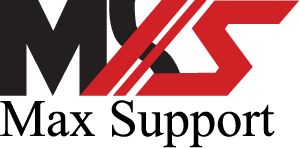News

Philippine Overseas Employment Administration (POEA) and 15 other government agencies already signed a Memorandum of Understanding to strengthen the operations of One-Stop Service Center for OFWs (OSSCO).
The Memorandum of Understanding was signed at the POEA where the labor department has formalized its collaboration with 15 other government agencies in the delivery of services to OFWs.
In the Memorandum of Understanding, they plan to put up more OSSCO in the country. Currently, a total of 3.8 million clients have been served by the 19 OSSCOs nationwide. They also plan to make the services available online. A 24/7 hotline has been set up to give guidance for OFWs concerns.
Back in August 2016, where OSSCO was launched at the POEA in Mandaluyong City, government frontline services are made accessible to Filipinos who are planning to work overseas. It operates from 8:00 AM to 5:00 PM, Mondays to Fridays. Through OSSCO, OFWs will no longer need to visit different government agency to process documents when applying for work abroad. It did not only shorten the processing time of documents but it also reduces their transportation expenses.
The government agencies in collaboration for the OSCCO are Department of Foreign Affairs (DFA), Philippine Overseas Employment Administration (POEA), Overseas Workers Welfare Administration (OWWA), Technical Education and Skills Development Authority (TESDA), Professional Regulation Commission (PRC), Maritime lndustry Authority (MARINA), Home Development Mutual Fund (HDMF), Philippine Health lnsurance Corporation (PhilHealth), Social Security System (SSS), Philippine Statistics Authority (PSA), Bureau of Immigration (BI), National Bureau lnvestigation (NBI), Commission on Higher Education (CHED), Tourism lnfrastructure and Enterprise Zone Authority (TIEZA), Philippine National Police (PNP), and Bureau of lnternal Revenue (BIR).
Image Attribution: Business card photo created by jcomp - www.freepik.com






The Overseas Workers Welfare Administration (OWWA) established assistance desks for Overseas Filipino Workers (OFWs) to aid them with their OFW emergency card (e-card) concerns at the three terminals of the Ninoy Aquino International Airport (NAIA). As per OWWA Administrator Hans Leo Cacdac, the assistance centers which aim to help OFWs regarding their concerns about the e-card were established in coordination with the Philippine Overseas Employment Administration (POEA). The OFW e-card, which was launched in November 2018 serves as a proof of active OWWA membership and provides easy access to welfare services, scholarships, training programs, and social benefits from OWWA. The e-card can be availed for free by all Balik-Manggagawa OFWs with active OWWA membership, valid Overseas Employment Certificate (OEC) or Exemption Number, and a valid passport. The e-card also serves as a valid ID which can be used by OFWs for transactions in different government agencies. To apply for an OFW e-card, visit the OWWA website at https://www.owwa.gov.ph/
Read More
Overseas Filipino Workers (OFWs) are covered by the Republic Act 1123 or the Universal Health Care (UHC) newly signed by President Rodrigo R. Duterte. Senator Jose Victor “JV” Ejercito authored and sponsored the UHC law. Under this law, all Filipino citizens, including Overseas Filipino Workers, are automatic members of the Philippine Health Insurance Corporation which will have coverage of free consultation fees, laboratory tests, and other diagnostic services. The UHC law allows all Filipino citizens to have access to affordable health care. In line with this, the UHC law aims to improve doctor-to-patient ratio, increase hospital bed capacities, and establish more hospitals in remote areas. Other significant reforms that will be implemented in time include designating PhilHealth as the national purchaser for health goods and services for individuals, such as medicines; improvement of health facilities especially in underserved areas; responding to the gap in health workers throughout the country; strategic engagement of the private sector; and creating and expanding new functions in the Department of Health (DOH) to improve the delivery of health services, according to an official statement by the DOH.
Read More
On November 6, 2018, the Overseas Workers Welfare Administration (OWWA) launched the emergency card (e-card) that can be used by OFWs (Overseas Filipino Workers). The OFW e-card helps lessen the number of documents that they need when applying for OWWA services. When availing of OWWA programs and services, such as welfare programs, scholarship applications, training programs, and other social benefits, the OFWs just need to present this e-card to any OWWA Regional Welfare Office in the country, or at the Philippine Overseas Labor Offices and Embassies/ Consulates wherever they are in the world. This e-card also serves as a valid ID which they can use for transactions in government agencies such as the Department of Foreign Affairs (DFA), POEA (Philippine Overseas Employment Administration), OWWA, Bureau of Immigration, and Philippine Overseas Labor Offices. The said card contains a unique OFW membership number and QR code as a security feature, to prevent data breach. To apply for an OFW e-card, visit the OWWA website at https://www.owwa.gov.ph/
Read More